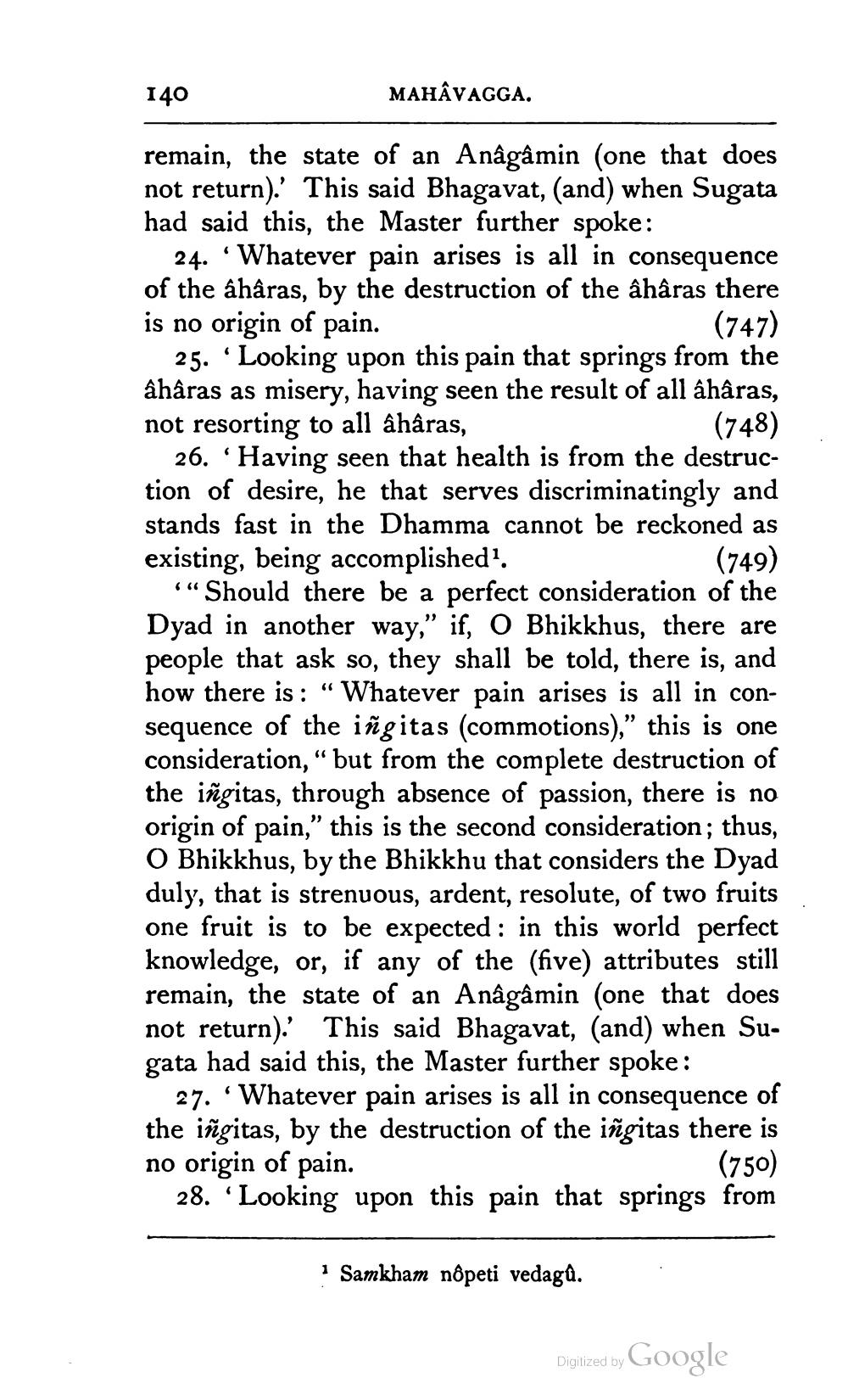________________
140
MAHẬVAGGA.
remain, the state of an Anâgâmin (one that does not return).' This said Bhagavat, (and) when Sugata had said this, the Master further spoke:
24. Whatever pain arises is all in consequence of the âhâras, by the destruction of the âhâras there is no origin of pain.
(747) 25. 'Looking upon this pain that springs from the âhâras as misery, having seen the result of all âhâras, not resorting to all âhâras,
(748) 26. `Having seen that health is from the destruction of desire, he that serves discriminatingly and stands fast in the Dhamma cannot be reckoned as existing, being accomplished'. o being accomplishedi
(749) "“Should there be a perfect consideration of the Dyad in another way,” if, O Bhikkhus, there are people that ask so, they shall be told, there is, and how there is : “Whatever pain arises is all in consequence of the iñgitas (commotions),” this is one consideration," but from the complete destruction of the iñgitas, through absence of passion, there is no origin of pain," this is the second consideration; thus, O Bhikkhus, by the Bhikkhu that considers the Dyad duly, that is strenuous, ardent, resolute, of two fruits one fruit is to be expected : in this world perfect knowledge, or, if any of the (five) attributes still remain, the state of an Anâgâmin (one that does not return).' This said Bhagavat, (and) when Sugata had said this, the Master further spoke:
27. Whatever pain arises is all in consequence of the iñgitas, by the destruction of the iñgitas there is no origin of pain.
(750) 28. 'Looking upon this pain that springs from
Samkham nôpeti vedagů.
Digitized by Google




